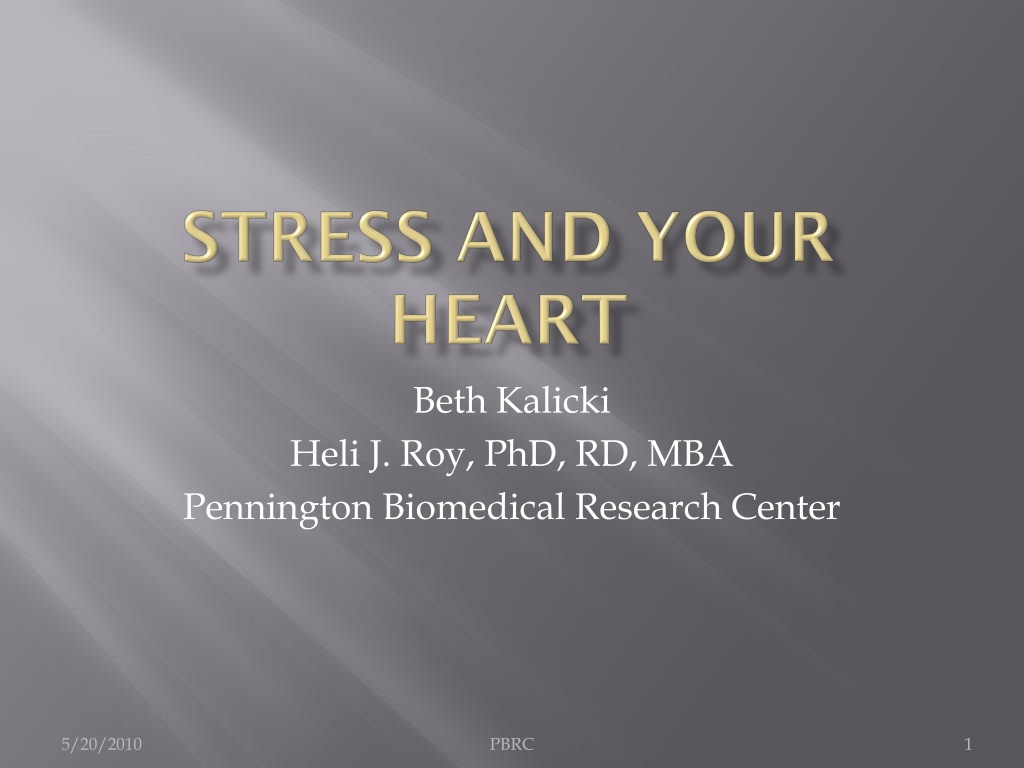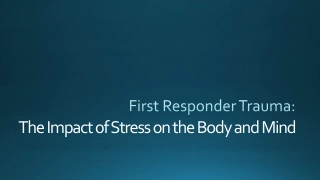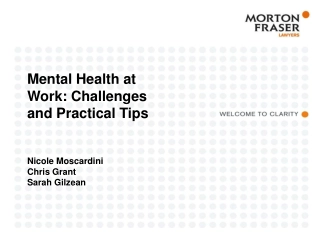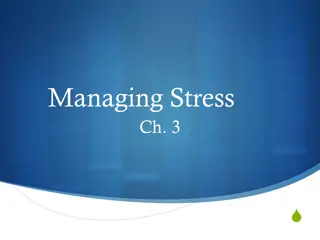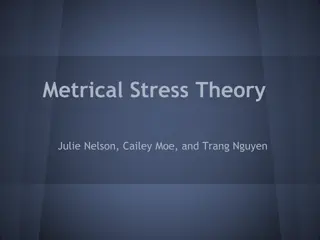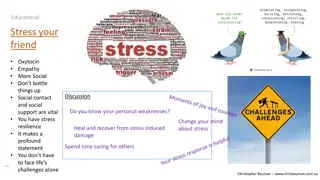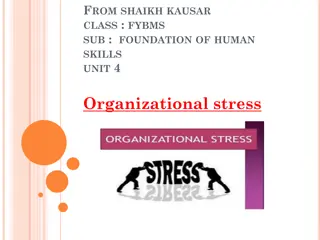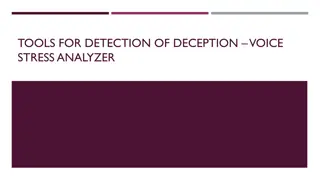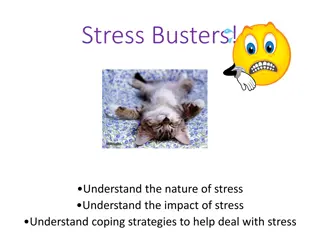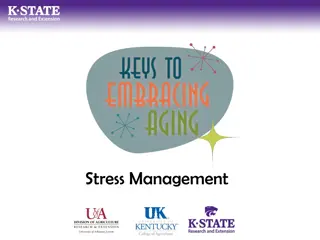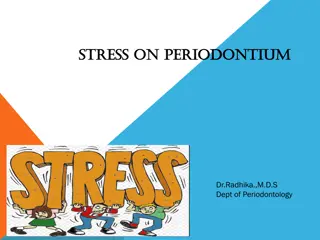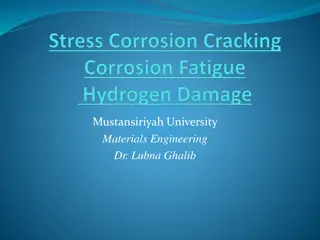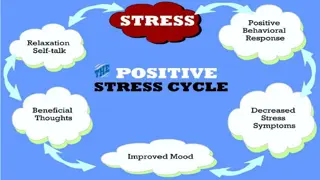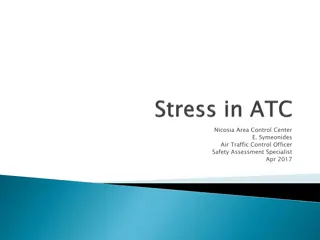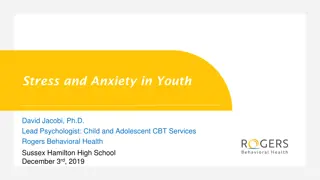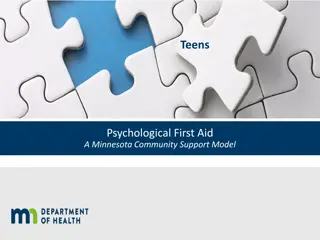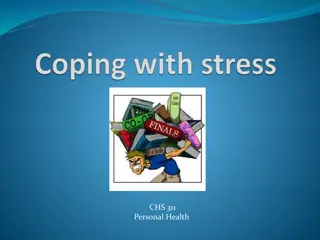Understanding Stress and Its Impact on Health
Stress is the body's response to various stimuli, resulting in physiological changes. It can manifest as physical symptoms such as muscle tension and increased heart rate, mental effects like forgetfulness and constant worry, emotional challenges including anger and depression, and behavioral changes like compulsive eating or withdrawal. Stress can be short-term or long-term, affecting the body differently. Managing stress through lifestyle changes, healthy habits, and self-care is crucial for overall well-being.
Download Presentation

Please find below an Image/Link to download the presentation.
The content on the website is provided AS IS for your information and personal use only. It may not be sold, licensed, or shared on other websites without obtaining consent from the author. Download presentation by click this link. If you encounter any issues during the download, it is possible that the publisher has removed the file from their server.
E N D
Presentation Transcript
Beth Kalicki Heli J. Roy, PhD, RD, MBA Pennington Biomedical Research Center 5/20/2010 PBRC 1
Stress is the bodys response to a physical, chemical, emotional, or environmental stress. Stress reaction includes physiological changes in the body. Stress can be short term of long term and the effects are different on the body. 5/20/2010 PBRC 2
Physical: muscle tension, increased heart rate, aches and pains. Mental: forgetfulness, poor memory, constant worry. Emotional: anger, depression, mood swings, negative thinking. Behavioral: compulsive eating, explosive actions, withdrawal. 5/20/2010 PBRC 3
Emotional stress is related to our feelings linked to experiences with others Physical Stress is related to physical exertion can be healthy 5/20/2010 PBRC 4
Body releases a stress hormone Results in increased: Heart rate Oxygen demand and breathing rate Tensed muscles Blood flow Alertness 5/20/2010 PBRC 5
Increased Heart Rate Increased Blood Pressure Increased risk of a heart attack. Increased risk for cardiac arrhythmias 5/20/2010 PBRC 6
Changes in heart rate Increased blood pressure Increased cholesterol level Increased triglyceride level Fat deposition around waist Metabolic syndrome 5/20/2010 PBRC 7
Lifestyle changes Lack of sleep Job Exercise 5/20/2010 PBRC 8
Eating and drinking sensibly Remembering that it is okay to say no Stopping smoking Exercising regularly Relaxing every day Taking responsibility for your actions Examining your values and living by them Setting realistic goals and expectations Reminding yourself about things that you do well Getting adequate rest 5/20/2010 PBRC 9
Some ways to prevent/manage the stress in your life include: Avoiding situations that you know are stressful. Exercising 30 minutes daily. Eating a diet that is rich in fruits, vegetables, and whole grains. Stopping smoking. Limiting alcohol intake. Managing stress by having quiet time, participating in meditation, prayer, reading, yoga, and other relaxation techniques. Bonding with family and friends. Expressing your feelings. Making and keeping an appointment with a physician. 5/20/2010 PBRC 10
Relaxation Techniques Becoming Sensitive to Personal Needs Deep Muscle Relaxation Biofeedback Training Anxiety Management Anger Management/Stress Inoculation Therapy 5/20/2010 PBRC 11
Pennington Biomedical Research Pennington Biomedical Research Center Center Authors: Beth A. Kalicki Heli J. Roy, RD, PhD, MBA Division of Education Phillip Brantley, PhD, Director Pennington Biomedical Research Center Claude Bouchard, PhD, Executive Director 5/20/2010 PBRC 12
The Pennington Biomedical Research Center is a world-renowned nutrition research center. Mission: To promote healthier lives through research and education in nutrition and preventive medicine. The Pennington Center has several research areas, including: Clinical Obesity Research Experimental Obesity Functional Foods Health and Performance Enhancement Nutrition and Chronic Diseases Nutrition and the Brain Dementia, Alzheimer s and healthy aging Diet, exercise, weight loss and weight loss maintenance The research fostered in these areas can have a profound impact on healthy living and on the prevention of common chronic diseases, such as heart disease, cancer, diabetes, hypertension and osteoporosis. The Division of Education provides education and information to the scientific community and the public about research findings, training programs and research areas, and coordinates educational events for the public on various health issues. We invite people of all ages and backgrounds to participate in the exciting research studies being conducted at the Pennington Center in Baton Rouge, Louisiana. If you would like to take part, visit the clinical trials web page at www.pbrc.edu or call (225) 763-3000. 5/20/2010 PBRC 13
American Heart Association. (2009). Something to Smile About: To Avoid Stress I Just Try to Keep it Simple. Reducing Stress. Retrieved August 11, 2009, from http://www.americanheart.org/print_presenter.jhtml?identifier=3047698 Brugg, Robert J. (2008). Heart Disease and Stress. Heart Disease Health Center. Retrieved August 12,2009, from http://www.webmd.com/heart- disease/ stress-heart-attackrisk?print=true Burg, Matthew, PhD., et al. (2009). Stress Behavior and Heart Disease. How to Lower Your Risk of Heart Disease, 95-104 Burke, Alison E. (2007). Acute Emotional Stress and the Heart. Journal of the American Medical Association, 298, (3), 360 DeNoon, Daniel J. (2009). Stress Raises Belly Fat, Heart Risks. Heart Disease Health Center. Retrieved August 12, 2009, from http://www.webmd.com/ heart-disease/news/20090806/stress-ups-belly-fat-heart-risks 1. 2. 3. 5. 6. 5/20/2010 PBRC 14
